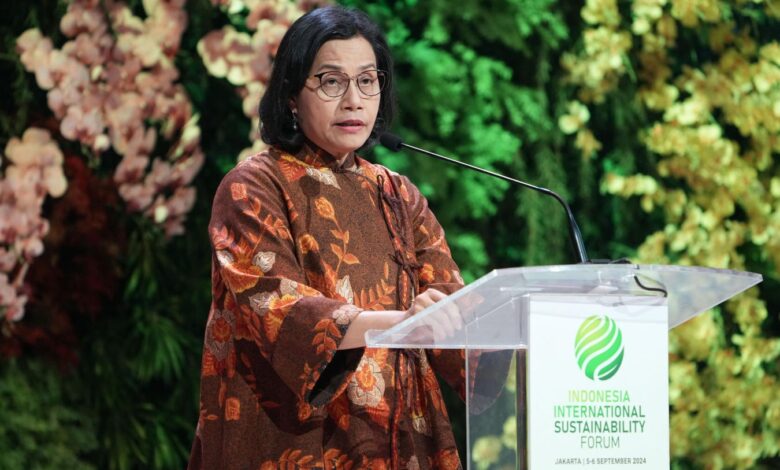Indonesian Stocks, Rupiah Fall After Finance Minister’s Sudden Exit

📝 usncan Note: Indonesian Stocks, Rupiah Fall After Finance Minister’s Sudden Exit
Disclaimer: This content has been prepared based on currently trending topics to increase your awareness.
Sri Mulyani Indrawati, Indonesia’s former finance minister, speaks at the Indonesia Sustainability Forum in Jakarta, Indonesia, on Friday, Sept. 6, 2024.
© 2024 Bloomberg Finance LP
Indonesian stocks and the rupiah dropped after the dismissal of Sri Mulyani Indrawati as finance minister heightened economic uncertainties for Southeast Asia’s largest economy.
Indrawati’s exit comes amid growing concern over President Prabowo Subianto populist policies that have so far failed to address the widening income inequality, which sparked widespread protests in recent weeks. While newly-appointed Finance Minister Purbaya Yudhi Sadewa said he will keep Indonesia’s fiscal spending in check, he also pledged to boost economic growth closer to Prabowo’s 8% target.
“I told the president we will get there gradually,” Purbaya, a veteran economist and former head of the Deposit Insurance Company, said. “To get there by this year will be tough. However, there is an opportunity in the next two to three years.”
Purbaya’s optimistic statement failed to stem the market slump. The benchmark stock index dropped 1.8% in late afternoon trading in Jakarta, while the rupiah fell 1.1% against the greenback.
Bhima Yudhistira Adhinegara, executive director at Jakarta-based independent research institute Center of Economic and Law Studies (Celios), said Sadewa has an urgent task to restore the public and investor confidence. The new minister of finance needs to evaluate and tweak the taxation policy to help boost consumers’ purchasing power. “Until then, investors will continue to speculate, especially on budget efficiency programs and tax policy in 2026.”
Indonesian stocks and the rupiah are unlikely to rebound in the near term as investors take a wait-and-see attitude until they see a clear policy direction from the new finance minister. “Purbaya is a new figure and investors will want to see what policies will be implemented,” David Sumual, chief economist at Bank Central Asia, Indonesia’s largest privately-owned lender, said.
Investors are concerned Prabowo’s plans to boost capital outlays in a bid to spruce of the country’s growth would lead to potential budget deficits, especially now that Indrawati, who was the vanguard of fiscal discipline during her almost 14 years in office, is no longer around to keep the fiscal largess in check.
Without Indrawati, “there are too many unknown variables now,” Ezaridho Ibnutama, head of research at NH Korindo Indonesia, said.




